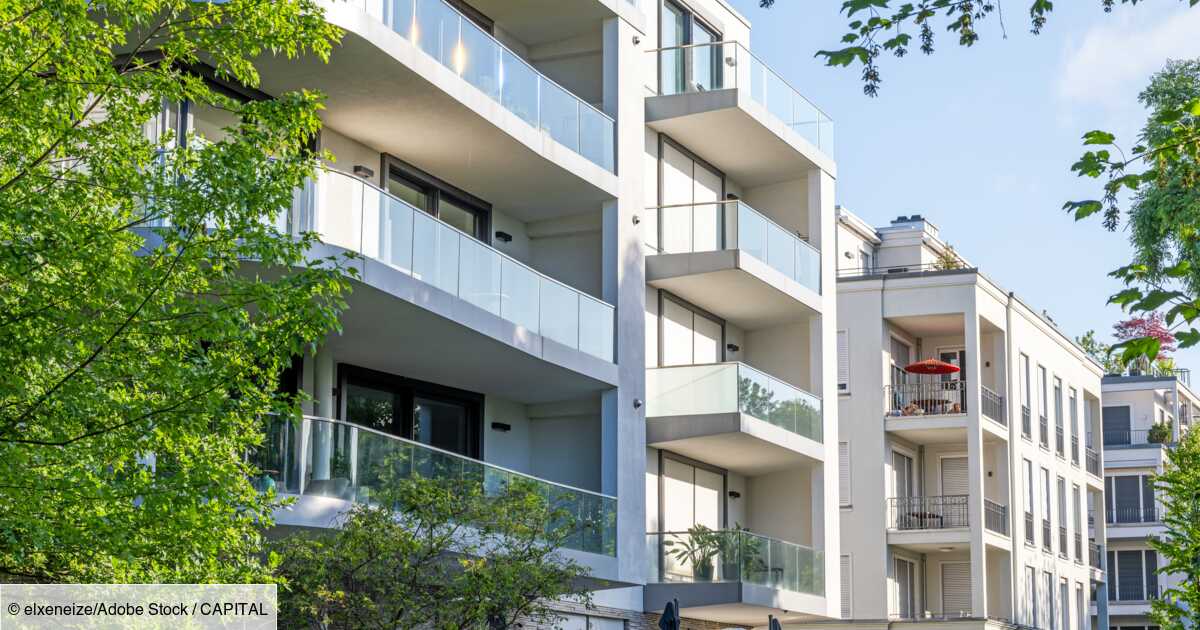Buffer in combat in the real estate sector: we are agitated by all parts to build a status of the private lessor, let’s say in a simpler way of the private rental investor. Working groups in all professional organizations, the ministries of housing and the economy in turmoil, a parliamentary mission entrusted by Valérie Létard to a senator former minister of housing and to a deputy … who did not prevent individual initiatives such as Charles de Courson, general rapporteur of the budget in the National Assembly, and the list is not exhaustive. In short, if the child is not born in the next finance law for 2026, he will never be born.
With precisely a downside: it would still be necessary that all these forces are centrifugal and not centripetal, or to use a rugby metaphor, which is pushed into a mixture and that the sector does not give the spectacle of the dispersion of forces. For the moment, efforts are lacking in coordination: we will expect the Minister of Housing, leader in this case, that she attempts the synthesis and the door to the preparation of the draft budget and to the final vote. We will also hope for the institutional stability of our country, threatened by a new dissolution of the National Assembly as by a motion of censorship of the government, which would put the site of the condition of the real estate investor.
The central question of economic attractiveness
And a second downside: the actors of this attempt to create a full -fledged status, which is no longer a niche or the exception, disparate and agglomerating several devices, surprisingly limit their proposals to the tax question. Admittedly, it is central and part of the order stands out from the field of taxation, in a country where income, whether of land or come from work, are heavily imposed … and where it is unlikely that it changes when it is urgent to reduce an abysmal public deficit. However, the subject is not there: it lies in the need for final income from placement in residential real estate at rental destination bring enough to the investor who has risked there. The question of theeconomic attractiveness is central, and taxation is of course one of the levers to play. The Pinel system until the end of last year, all those who preceded it, Loc’Avantages, the land deficit, the rental company in non -professional or professional furnished, all this was until then supposed to recognize that the investor provides with his savings and his debt capacity a service to the community by staying with a household and had to receive a particular tax consideration.
The economic assessment of the landlord is nevertheless impacted by other effects, and on these subjects, almost silence. Two, adults, deserve to be attached to the debate for the construction of an authentic status of the private lessor, the Revision of recoverable charges and the Securing rents. These two questions have non -marginal consequences on what remains at the end to the owner investor and powerfully condition the interest of going or not towards private rental investment. They have a second virtue, considerable in these times of budgetary misery: they do not cost the state. They fall under the relationship between the lessor and his tenant and the balance specified by law and the regulations between the two. Clearly, it is texts of a civil and non -budgetary nature that frame them. They are also generally less controversial than financial texts.
Revision of recoverable loads and securing rents
The list of charges that the owner has acquired and of which he may request a reimbursement from the tenant is set by a decree dating from… 1986. Incidentally, it concerns public housing, HLM to use a agreed and private designation. A specific text, in force since January 1, 1987, aligns the regime for social housing charges with that of private housing. 1987-2025… We see where the problem is. The technical developments in buildings, the deployment of new equipment within buildings, the need for more services and the appetite of tenants to use it, obsolescence of other equipment and services, all this motivates an outright update from the list. Admittedly, one can want to make this subject an ideological theme, which will oppose owners and tenants and reopen a war of religion. In fact, it is technical, no more no less.
We measure that there may be discussion on the recovery of this or that charge, but it will not be insoluble. Who would find normal that the use of equipment or services which is rightly benefited from a lessee is assumed by the owner alone and that his rental performance is degraded? This is the background of the subject, without passion.
As for security, it is an old moon. The heaviest risk incurred by a lessor is that which his tenant no longer pays the counterpart of the service given to him, the rent. The tightening of economic circumstances and social changes, uninterrupted for twenty years, tend to grow this risk. We get more fired, we separate more, we assume greater constraint expenses. A deputy for the first Macronian legislature, now a special advisor to the Minister of Economy, Mickaël Nogal, had made a report and wrote a bill at the request of the Minister of Housing at the time, Julien Denormandie, in sight “Rent with confidence”in favor of economic security both of the lessor and the lessee, who could spare in particular a procedure that can lead to the expulsion.
Expand the field of vision to what is not fiscal
Why do we smoke these proposals? There was a question for example of making professional managers compulsory the coupling between management mandate and insurance against unpaid and rental degradations, at least the obligation to present an insurance product, which could be deprived or resulting from the supply of social partners, Visale. To date, less than one in five rental has been accompanied by security. In short, Four out of five rentals are exposed to the risk of unpaid. In this case, if an unpaid one appears, the rental yield, which we strive to want to boost by an adapted taxation, with for example possible depreciation of the property, is put down and compromise. Ensuring the payment of the rent is more important basically than optimizing rental income by taxation.
It would be happy that Senator Marc-Philippe Daubresse and MP Mickaël Cosson extends their reflection and the perimeter of their report to these crucial questions. That they make it at least mention, and that the professional and associative actors that they will hear expand their field of vision to what is not fiscalwhile constituting determining economic themes for the lessor and being obvious to his future status. A historical opportunity opens, that it would be guilty not to grasp.











